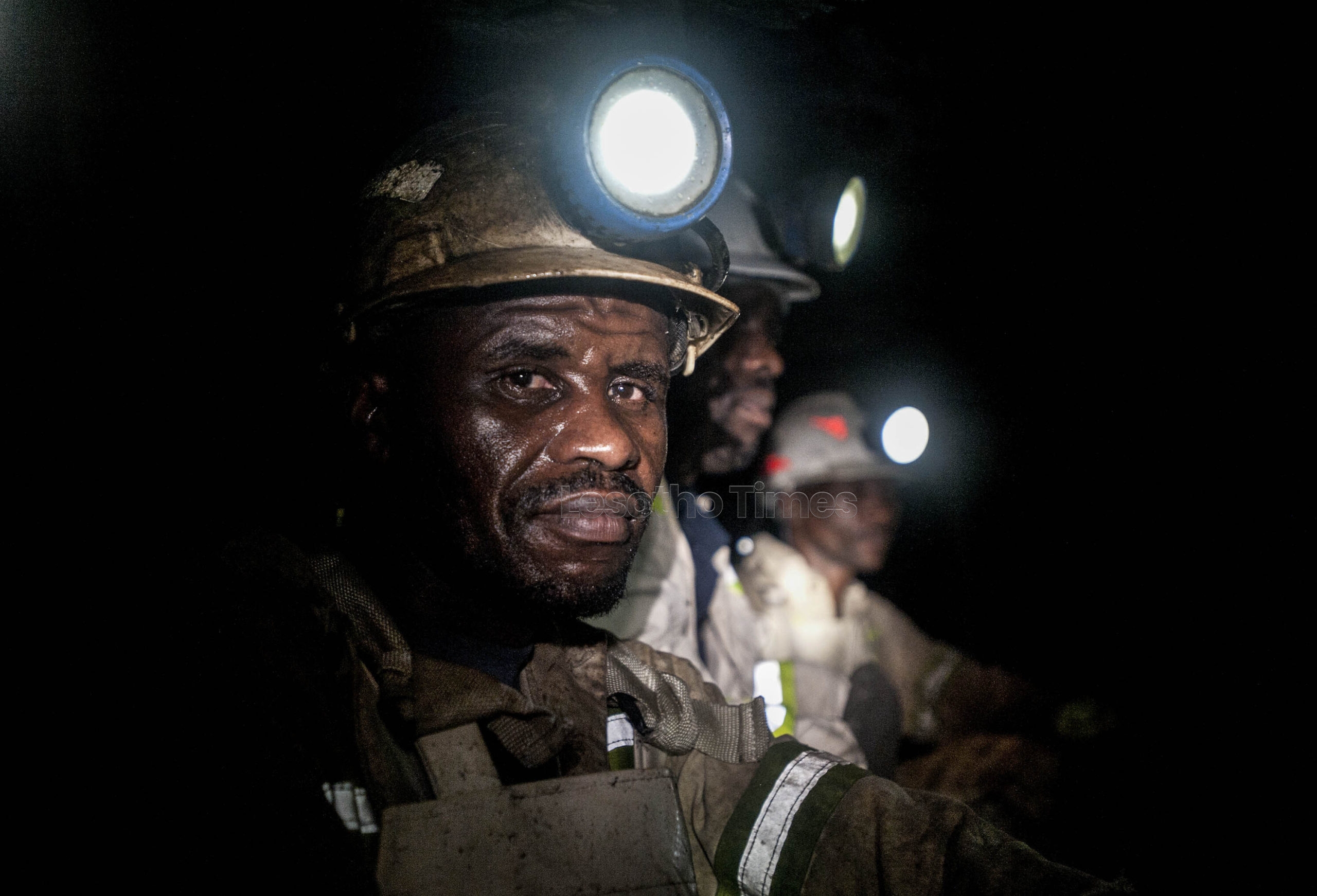… as Mafeteng Hospital loses records
Mathatisi Sebusi / Hopolang Mokhopi
BENEFICIARIES of ex-miners who died from tuberculosis (TB) and silicosis after working in South African mines might lose their compensation.
This after the Mafeteng Hospital’s shocking revelation that it had lost some identifications of organ samples collected from the deceased miners for medical examinations.
For beneficiaries of deceased ex-miners to get compensated, a postmortem needs to be conducted to establish if the deceased died from permanent lung damage due to silicosis and cardio-respiratory or pulmonary tuberculosis caused by work done for the mining companies involved in paying the compensation.
This revelation was made before the Social Cluster Portfolio Committee, where the hospital, Miners’ Council and the government’s ex-mineworkers task team were invited to provide updates on the compensation process for ex-miners who died due to TB and silicosis contracted in the SA mines.
Occupational health specialist from Mafeteng Hospital, Dr Hatane Hatane, informed the committee that the hospital lost identification tags for hearts and lungs collected between 2018 and 2019. These samples were meant to be delivered to South Africa for testing to confirm the presence of TB and silicosis.
He explained that transportation of organ samples ceased in 2020 due to the lockdown imposed to curb the spread of COVID-19. Since then, the samples had been stored at the hospital mortuary, where their identifications tags had been misplaced.
“The primary purpose of collecting the heart and lung samples was to conduct tests for TB and silicosis, both of which are prevalent among miners due to their exposure to harmful dust and pathogens in the mines,” Dr Hatane said.
“If the tests confirm the presence of these diseases, the families of the deceased would be eligible for compensation and support, which is vital for their financial stability.”
Dr Hatane’s disclosure followed concerns raised by Dr Lineo Raselimo from the Men’s Clinic at Sankata Clinic that approximately 31 organ samples collected over seven years were still stored in Mafeteng Hospital’s mortuary, awaiting transport to South Africa for testing.
She expressed doubts about the samples’ viability for testing.
“The samples have not been sent to South Africa since COVID-19, and we are uncertain whether they are still in conditions suitable for examination. This delay is risking attempts to acquire compensation for the dependents of deceased ex-miners,” Dr Raselimo said.
Challenges
Lesotho works in partnership with South Africa’s Medical Bureau for Occupational Diseases (MBOD) and the National Institute for Occupational Health (NIOH) to analyse samples from deceased ex-miners. These analyses are critical for determining whether the individuals suffered from the diseases in question.
Dr Raselimo noted that prior to the pandemic, a Mosotho doctor facilitated the transportation of samples using equipment provided by MBOD and NIOH. However, she indicated that the contract between the doctor and the South African institutions had lapsed, which might have contributed to the current standstill.
In light of the situation, the Chairman of the Social Cluster Portfolio Committee, Mokhothu Makhalanyane, suggested that blood tests be used to identify the owners of the lost heart and lung samples.
“Testing family members’ blood samples could help identify the organ samples, reconnecting them with their rightful owners and ensuring families can still access the benefits they deserve,” Mr Makhalanyane said.
He also encouraged for improved systems to manage and safeguard biological samples, particularly those linked to public health and welfare.
“The loss of these identification labels raises serious concerns about the management of medical samples and protocols for safeguarding sensitive information. This incident highlights the need for enhanced tracking and management systems for biological samples.”
Compensation framework
Ex-miners who contracted TB and silicosis while working in selected South African mines, as well as beneficiaries of deceased miners, are eligible for compensation from the Tshiamiso Trust. This trust was established in February 2020 as part of a settlement agreement reached in the Johannesburg High Court in 2016 between the mines, claimants’ representatives, and their attorneys. The trust’s mandate is to compensate an estimated 500,000 ex-gold miners across Southern Africa, including Lesotho, eSwatini, Botswana, and Mozambique, which served as labour pools for the South African gold mines.
The Executive Stakeholder Relations and Communication officer at Tshiamiso Trust, Lusanda Jiya, explained to the committee that compensation was provided only for permanent lung damage caused by silicosis and cardio-respiratory or pulmonary tuberculosis linked to work in selected South African mining companies. These conditions can only be confirmed through medical tests conducted by South Africa’s MBOD and NIOH.
“For one to be eligible for silicosis compensation, they must have carried out risk work at one of the qualifying gold mines during the qualifying period between 12 March 1965 and 10 December 2019. It is important to note that some mines changed ownership during this period and are considered only for the times they were owned by the participating mining companies,” she said.

